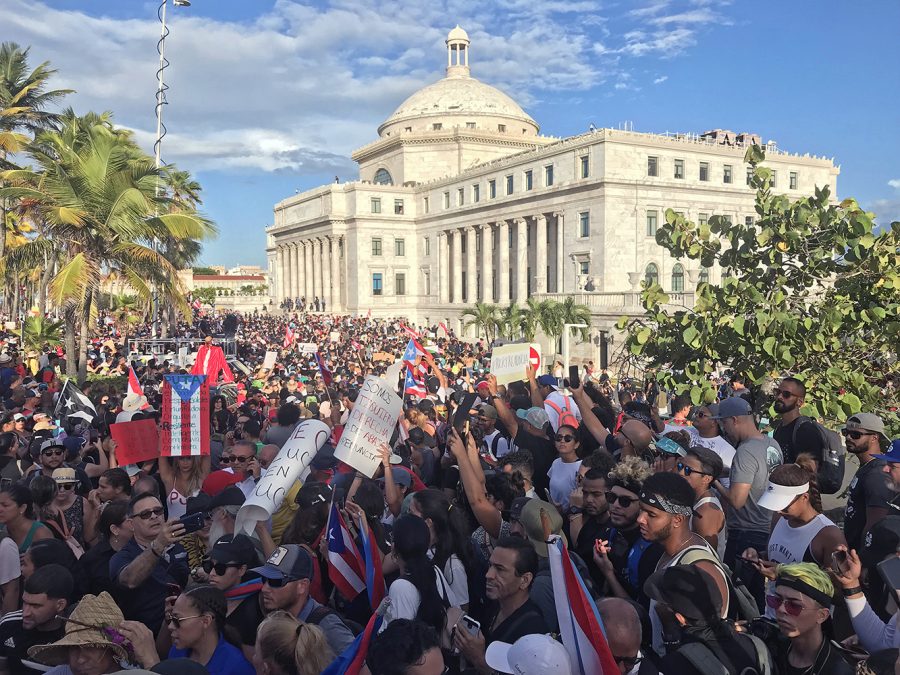Jaimes: Puerto Rican officials should fear new standards of accountability
Governor Ricardo Rosselló resigns from his position on Friday, handing Puerto Ricans a victory in their fight against government corruption.
Massive protests calling for Puerto Rican governor’s Ricardo “Ricky” Antonio Rosselló Nevares resignation following the leaked of private chats. As a massive protest is plan to take place in front of the Capitol all the way to La Fortaleza on Wednesday July 17, 2019. (Pedro Portal/Miami Herald/TNS)
July 29, 2019
Thousands of Puerto Ricans took to the streets of San Juan last week to protest the position of Gov. Ricardo Rosselló after leaked messages between him and officials close to him contained texts laced with vulgar and threatening language toward women, journalists, people with disabilities, and the LGBT community.
Roselló backtracked on his claim that he would not seek resignation or re-election and resigned, effective Aug. 2, after impeachment proceedings appeared to be inevitable in the House of Representatives. The act was encouraged by many, including President Trump and presidential candidate Rep. Tulsi Gabbard, D-Hawaii, as well as members of Roselló’s own political party.
Rosselló’s resignation was the result of government that was accustomed to taking advantage of its people and taxpayers, all while relentlessly mocking those very people via group message — and they have finally had their voices heard through persistent protest.
For the first time in months, the people of Puerto Rico were rewarded for their dissent against the government. In the words of the New York Times, “this callousness and partisan self-dealing were rubbing salt into a long-festering wound.”
News of the controversial text messages broke just days after five Puerto Rican government officials and the Puerto Rico secretary of education were arrested for shady federal contracts and using funds for illegal lobbying.
In total, the scandal involves $15.5 million in federal funding over the span of the last two years.
It seems that every summer I am tasked with writing about the shortcomings of the territory my family calls home. Last August, almost a year after Hurricane Maria, I wrote about the Toa Baja finance directors accused of stealing $5 million in federal funds, along with Mayor Miguel Ortiz, who defrauded the federal government of $3 million, leaving the island in debt before the devastating storm hit.
After the storm, relief donations including baby supplies and water became rat-infested after sitting in the parking lot of the San Juan election bureau office for more than a year.
Hurricane Maria also followed a desperate financial crisis for Puerto Rico, in which the government become reliant on borrowing funds rather than decreasing spending.
Firsthand accounts from grandparents, aunts, and uncles said conditions on the island were less than ideal before Maria hit, with these claims supported in just a few sentences from NPR: “And it wasn’t just the power grid. Water-pumping stations, bridges, levees, roads — all had been starved for investment for years… Before the storm, the island could afford only five building-code inspectors for a population of 3.5 million people.” In all, it appears to be more common for taxpayer money to be found in the pockets of officials than for its intended purposes on the island.
Puerto Ricans achieved a well-deserved victory last week. Many solutions have been proposed to counteract the massive corruption they face, ranging from declaring independence to more federal oversight from the United States. Whatever the right solution is, they can find comfort in their voices are now being heard, and they demand accountability from self-serving politicians intended on defrauding their people.



